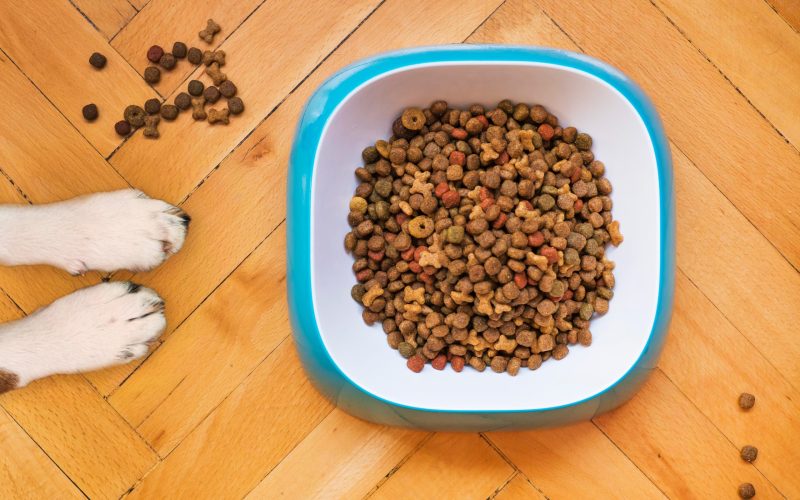Are you struggling to find the perfect food for your furry feline friend? Does scrolling through endless options make your head spin? Look no further! We’ve gathered top tips and tricks for finding the pawsitively perfect nutrition for your kitty. Your feline’s health, energy levels, and overall happiness depend on their diet – so let’s get started!
Types of Cat Food
The best food for your feline friend is the one that meets their specific nutritional needs. Cats are obligate carnivores, which means that their bodies are designed to digest and use animal-based proteins and fats. This means that a quality cat food will be high in protein and fat, and low in carbohydrates.
There are a variety of different types of cat food available on the market, from wet food to dry food to raw diets. The type of food you choose should be based on your cat’s individual preferences and needs.
Wet food is a great option for cats who need more moisture in their diet, as it is higher in water content than dry food. It can also be a good choice for cats who prefer a softer diet.
Dry food is perfect for cats who like to crunch and nibble on their food. It is also a good option for those who live in hotter climates, as it contains less moisture than wet foods.
Raw diets are becoming increasingly popular among pet parents looking to feed their cats the most natural diet possible. These diets consist of raw, uncooked meat, bones, and organs, as well as some fruits and vegetables. While they may require some extra preparation on your part, they offer your cat the most biologically appropriate diet possible.
Factors to Consider When Choosing Food for Your Cat
There are a few things you’ll want to take into consideration when choosing food for your cat. Here are a few tips:
1. Consider your cat’s age and health. Kittens and senior cats have different nutritional needs than adult cats. If your cat has any special health needs, you’ll want to make sure their diet can accommodate those needs.
2. Pick a protein-rich diet. Cats are carnivores, so their diet should be rich in animal protein. Look for a food that lists meat, poultry, or fish as the first ingredient on the label.
3. Avoid foods with fillers and artificial ingredients. Many commercial cat foods contain fillers like corn and wheat, which provide little nutrition for your cat. Artificial ingredients like flavorings and colorings are also best avoided. Instead, choose a natural, holistic food made with high-quality ingredients.
4. Talk to your vet about what type of food is best for your cat. They can help you narrow down your options and find a food that will meet your cat’s individual needs.
Nutritional Requirements for Kittens, Adults and Senior Cats
Diet is an important part of keeping your cat healthy at every stage of life. Kittens have different nutritional needs than adults and seniors, so it’s important to choose a food that’s formulated for your cat’s age.
Kittens need a diet that’s high in calories and protein to help them grow. Adult cats need a balanced diet that meets their energy needs. Senior cats may need a diet that’s lower in calories to help them maintain a healthy weight.
When choosing a food for your cat, always start with one that’s formulated for their age group. You can then tailor the food to your cat’s individual needs based on their activity level, health condition, and any other special dietary requirements. For example, some cats may need a grain-free diet if they have allergies or sensitivities.
No matter what type of food you choose, always make sure it provides the essential nutrients your cat needs for good health. These include protein, fat, vitamins, minerals, and water.
Common Mistakes People Make in Feeding their Cats
There are a few common mistakes that people make when feeding their cats which can lead to an unhealthy diet for their feline friend. The first mistake is feeding their cat table scraps. While you may think that your cat is enjoying the same delicious meal as you, the truth is that table scraps are often lacking in the nutrients that cats need and can even be harmful if they eat too much of them.
Another common mistake is not paying attention to the ingredient list on cat food labels. Just like with human food, some cat foods can be loaded with unhealthy ingredients and fillers. Always check the label to make sure you are getting a quality food that will provide your cat with the nutrients they need.
Many people make the mistake of not providing their cats with enough water. Cats need plenty of fresh, clean water to stay hydrated and healthy. If you are not sure how much water your cat needs, ask your veterinarian for advice.
Final Thoughts
Keeping your cat’s nutritional needs in mind is essential for their overall health and wellbeing. Taking the time to research the best food for your feline is well worth it, as it can ensure that they receive all the nutrients and energy sources necessary for good health over the years. We hope our tips have given you a starting point on how to find pawsitively perfect nutrition for your furry friend!









